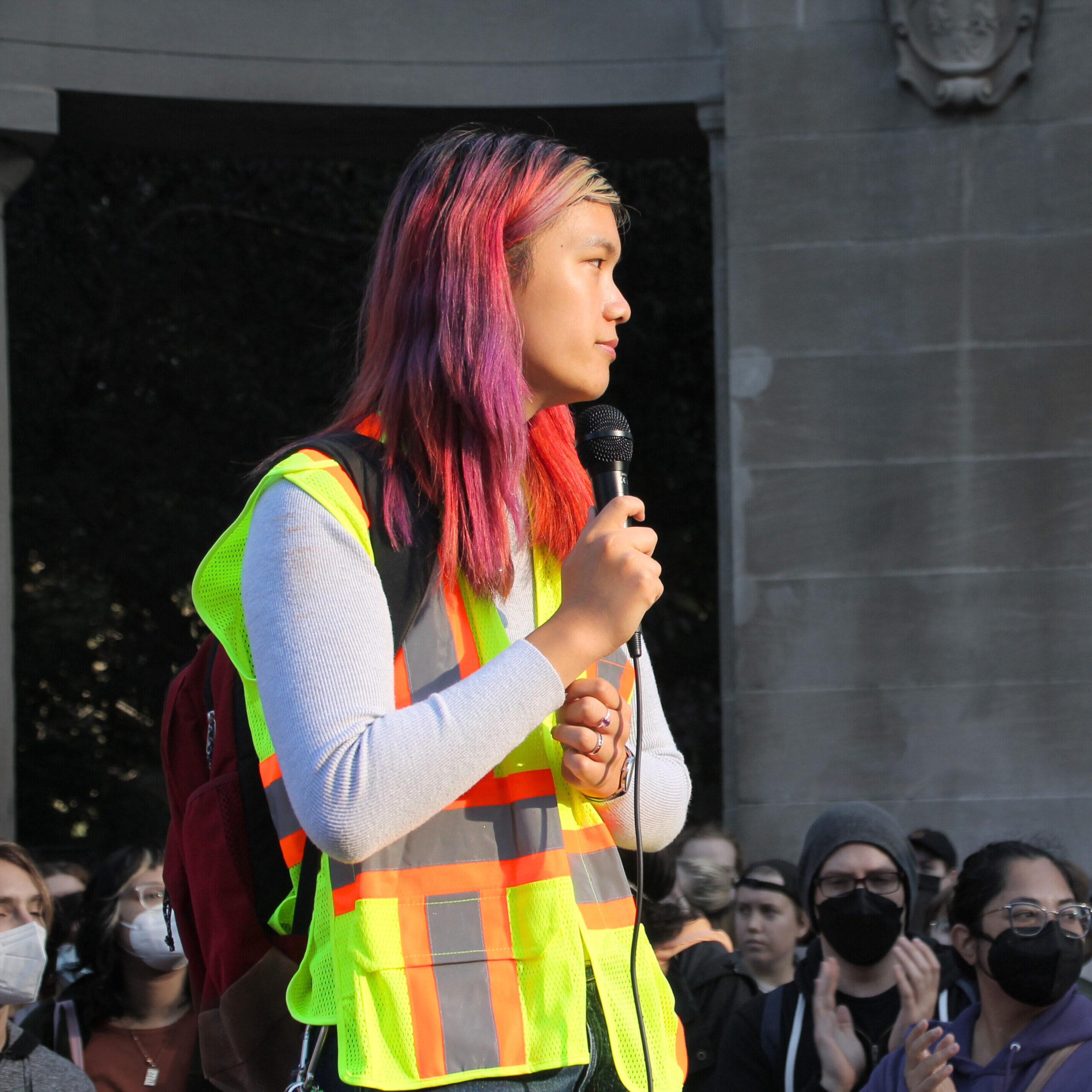Earlier today, Suzanne Roy, Québec’s Minister of Families, just presented her takes on the Québec Comité de sages sur l’identité de genre report — mind you, a committee created after anti-trans moral panics in Québec, in order to study trans people, without trans people. On the agenda: questioning the WPATH Standards of Care, denying science, giving free rein to anti-trans disinformation, and above all, relaying TERF groups’ talking points. A very bad sign — less dire than Alberta, but frightening nonetheless — for what lies ahead for trans rights in Quebec.
Let us recall the context of the aforementioned Comité de sages: a report was drafted without the names of those involved, with all names anonymized in order to give equal weight to trans people and groups seeking their extermination. This approach is described as “relevant, yes, nuanced, but above all, unbiased:” because transgender people, and the experts who work with them, are, according to the Quebec government, inherently biased. This is a total rejection by this same government of the self-determination of trans people. It is putting all trans people under a form of guardianship, just like how Québec women were in the 1950s.
From the outset, Suzanne Roy discusses the role of parents in their kids’ transition — without mentioning the Québec guiding (and legal!) principle of the best interests of the child, which is nevertheless advocated in the report itself — and states that she wants to maximize the role of parents of trans kids in their transitions. The trans community too often finds itself on the front lines of rejection and exclusion by our parents. We too often find ourselves kicked out on the street simply because came out too early. This is not the exception, but too often the rule—and as long as transphobia exists, the state should not attempt to impose an arbitrary role on parents. Trans youth do not belong to their parents, but rather to themselves.
Even more frightening: Suzanne Roy freely accepts the paradigm used by the Comité de sages, in that the rights of women and those of trans people are somehow diametrically to each other. This point, which is blatantly false, is taken directly from anti-trans groups such as PDF-Québec, as well as the international anti-trans movement. She mentions that “there are two sexes, male and female, two biological sexes, and then there is gender,” transposing the notion of “sex assigned at birth” to “biological sex.” This is pure transphobia, legitimized by the actions of governments elsewhere in the world, and now, the CAQ.
Perhaps (yet) even more concerning: Suzanne Roy puts in question the scientific consensus that already exists regarding standards of care for trans people. Ms. Roy concludes that there is no scientific consensus on the subject of such care. This is a complete rejection of the truth in favor of anti-trans disinformation. And, the CAQ being the CAQ, she mentions that she now wants to mandate the INESSS and the INSPQ—two public health and social services organizations — to further study trans healthcare and which scientific approaches to take. Two more reports, despite the fact that a scientific consensus already exists: the WPATH Standards of Care!
It should also be noted that Suzanne Roy is attacking informed consent, referring in particular to the Trans Express anti-trans disinformation episode, and says she wants to put an end to “the fifteen-minute prescription” (read: more gatekeeping). Once again, we return to the Québec government’s central paradigm, which is clearly evident before, during, and after the Comité de sages’ mandate: that the government is better placed than trans people to decide on issues that (often exclusively) affect trans people. In short, legal guardianship, as was the case for women in Quebec before 1964.
Shame.
* * *
So, what’s next? We don’t know. However, Suzanne Roy has promised to forward the report to the relevant ministries so that they can develop guidelines. For example, the Québec Minister of Education would be responsible for developing guidelines on the inclusion/exclusion of trans girls in recreational sports, as well as guidelines on transitioning in school.
However, the Comité de sages did made recommendations that would require legislation in order to be adopted. Therefore, I cannot rule out the possibility that we could have anti-trans laws here in Quebec. I’ll continue to monitor anti-trans developments in Québec and in Canada. As for the rest, only time will tell.
My critical summary of the Comité de sages‘ report itself is available on my website.
